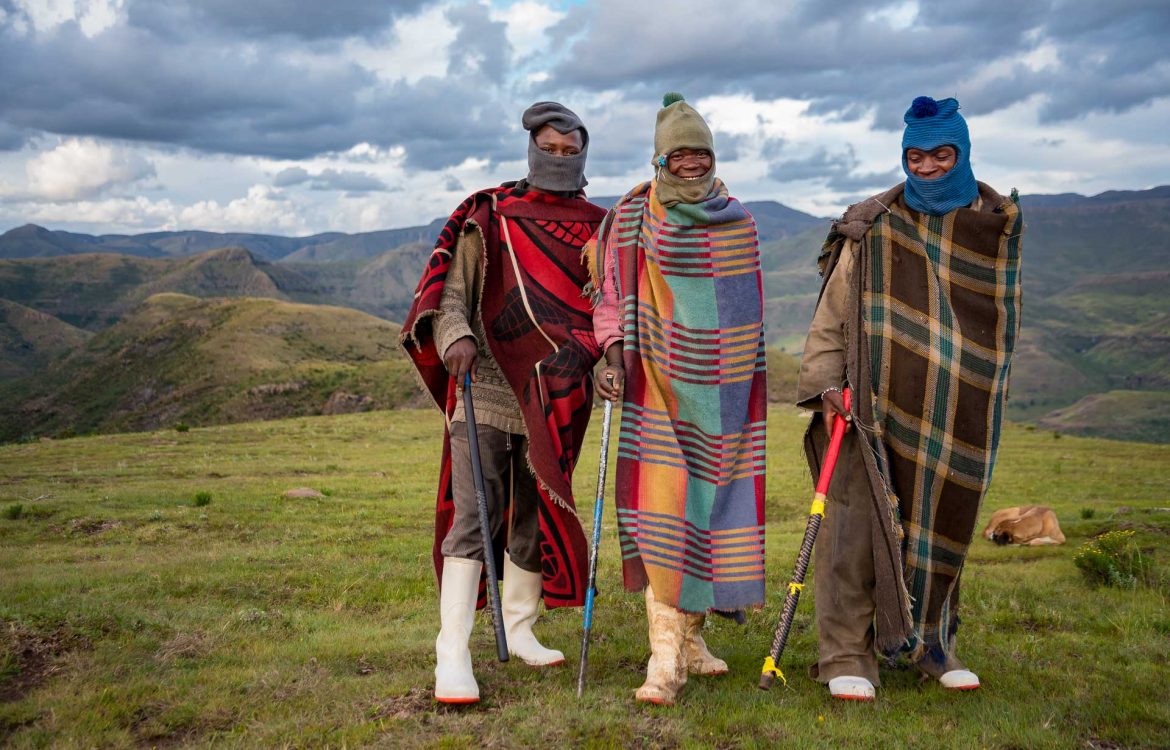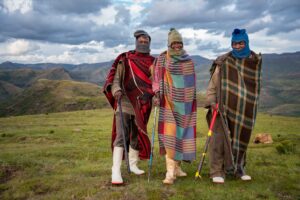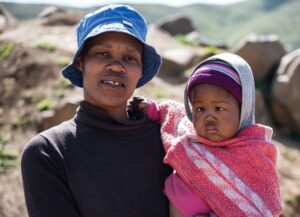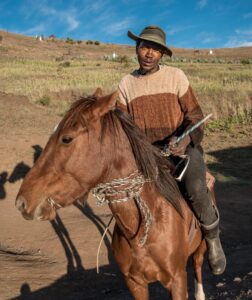
Lesotho’s Ace in the Hole
My mother had a saying about how life seemed to work that always stuck with me: ‘Chicken today, feathers tomorrow.’ There are probably many ways to parse this, but to me, it’s always boiled down to the wiles of fortune—Good one day, not so the next.
This pithy little aphorism applies to geography as well—some places get milk and honey while others get rock and sand. Of course, as we now know, that rock and sand can be hiding other kinds of buried treasure. Some sandy patches in the Middle East have become wealthy beyond belief not because you could drop a seed anywhere and it would grow. No, these patches of rock and sand sat on top of vast quantities of the industrial go-juice that made the modern world go round—oil.
Still, there are other nations that have dug beneath their rock and sand to find another valuable commodity, though one imminently less practical: diamonds. And as De Beers has been telling us all these years, ‘diamonds are forever.’ Quite unlike those oil reserves! Marketing flim-flam aside, diamonds have certainly been very good for South Africa and Namibia. Very good, indeed.
The thing about both oil and diamonds, though, is you can’t eat or drink either of them. They certainly aren’t essential to life on the most basic level. Water is, and in the case of South Africa and Namibia, (we might add the Middle East as well…) water is the one thing they do NOT have an abundance of. Let’s not forget the recent water crisis in Cape Town or the fact that Namibia is almost exclusively desert.
The tiny Kingdom of Lesotho (Le-soo-too), that little patch of green wedged in the belly of South Africa, has plenty of water, more than it needs. Its high elevation terrain catches precipitation in the form of rain and snow much more reliably than the lower elevations of its bigger regional neighbors South Africa and Namibia. Lesotho has long understood this and has realized that water is its ace-in-the-hole.
It also knows that both South Africa and Namibia have had to think about water beyond their borders, much like the thirsty desert states of the western US. Lesotho’s good fortune in terms of water has long been recognized by the larger world, and especially, South Africa, which has made water treaties with the Kingdom along with helping to finance large dam projects.
Over the last forty years, Lesotho has been developing a massive scheme called the Lesotho Highlands Water Project. While I was in the Kingdom, I spent a night at a place called ‘Mohale Lodge’ in the heart of, surprise, the Mohale Dam project. With financing by the World Bank and South Africa, the dam provides much needed water for South Africa’s Gauteng region, which includes Johannesburg and Pretoria. It also happened to flood some of Lesotho’s richest agricultural land in the process, something I’m guessing the people in those areas were likely not consulted on.
The sprawling hotel complex of the Mohale Lodge seemed to have a purpose which was not entirely clear. When I visited there were only a few other guests in the entire place which gave it an eerie, off-season empty feeling. Not quite Jack Nicholson at the typewriter eerie, but it sure had the potential.
The high-ceilinged restaurant dining room was staffed by an unhurried heavy-set waitress who shuffled in and out for the only two customers: me and an older white guy with a British accent who also sat alone at a table in the silent, austere room. The whole place reminded me of the government-run establishments I saw in China almost thirty years ago; places where the only job requirement was to show up.
None of this made much sense to me. A huge empty hotel and restaurant at the site of a large dam project. Why was it here? Who was it built for? Certainly not for the folks of Lesotho I’d seen along the way. The room I had in the hotel was bigger than most of their round stone houses.
Was this whole hotel complex just for show, I wondered? Something to impress the global bankers who would want to come see the big lake behind the dam they’d financed? And how was Lesotho paying off its loans for the project? It had a treaty which gave South Africa water in return for its investment, but I couldn’t see the World Bank taking payment in water. They obviously had some more opaque interest here. Maybe they saw Lesotho as a regional water broker in the future and wanted a piece of the action.
Like many other places I’d visited in Africa, the Chinese had planted the flag here too, building roads, mostly. Having made their fortune as the global juggernaut of manufacturing, they were now branching out into becoming the global juggernaut of infrastructure. Clearly, the Chinese weren’t doing any of this for free, but what they were doing it for was not so obvious. Part of a subtle empire expansion strategy? To generate revenue and work for so many new Chinese heavy construction firms? To make friends through a kind of largesse?
All of this piqued my curiosity. The only thing that seemed clear to me was Lesotho’s confidence. What it lacked in size, it more than made up for with its abundance of water. And perhaps this little African Kingdom also understood that, in some not too distant future, water would be way more valuable than either gold or diamonds.




